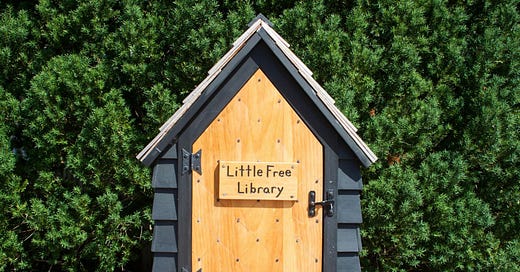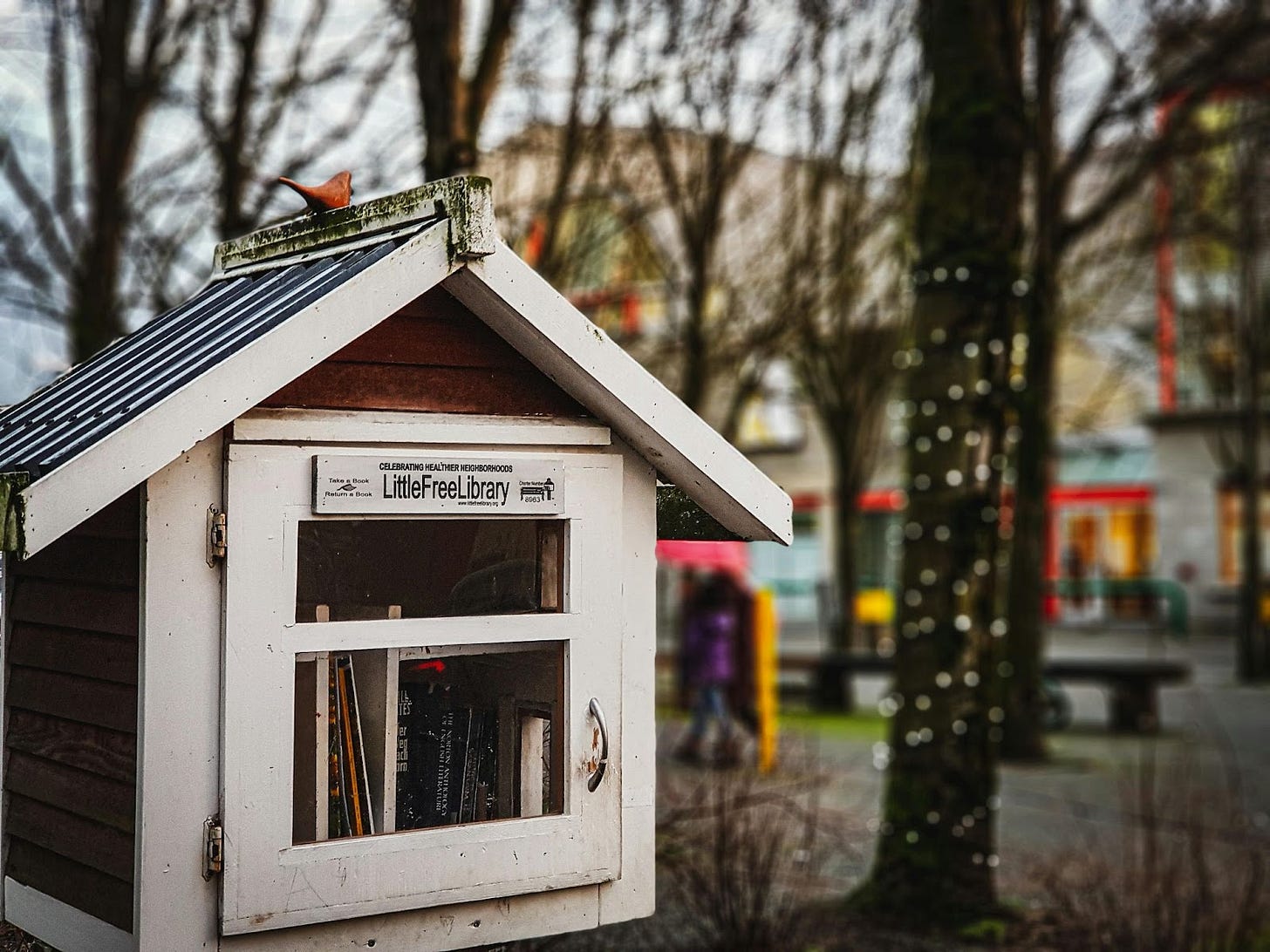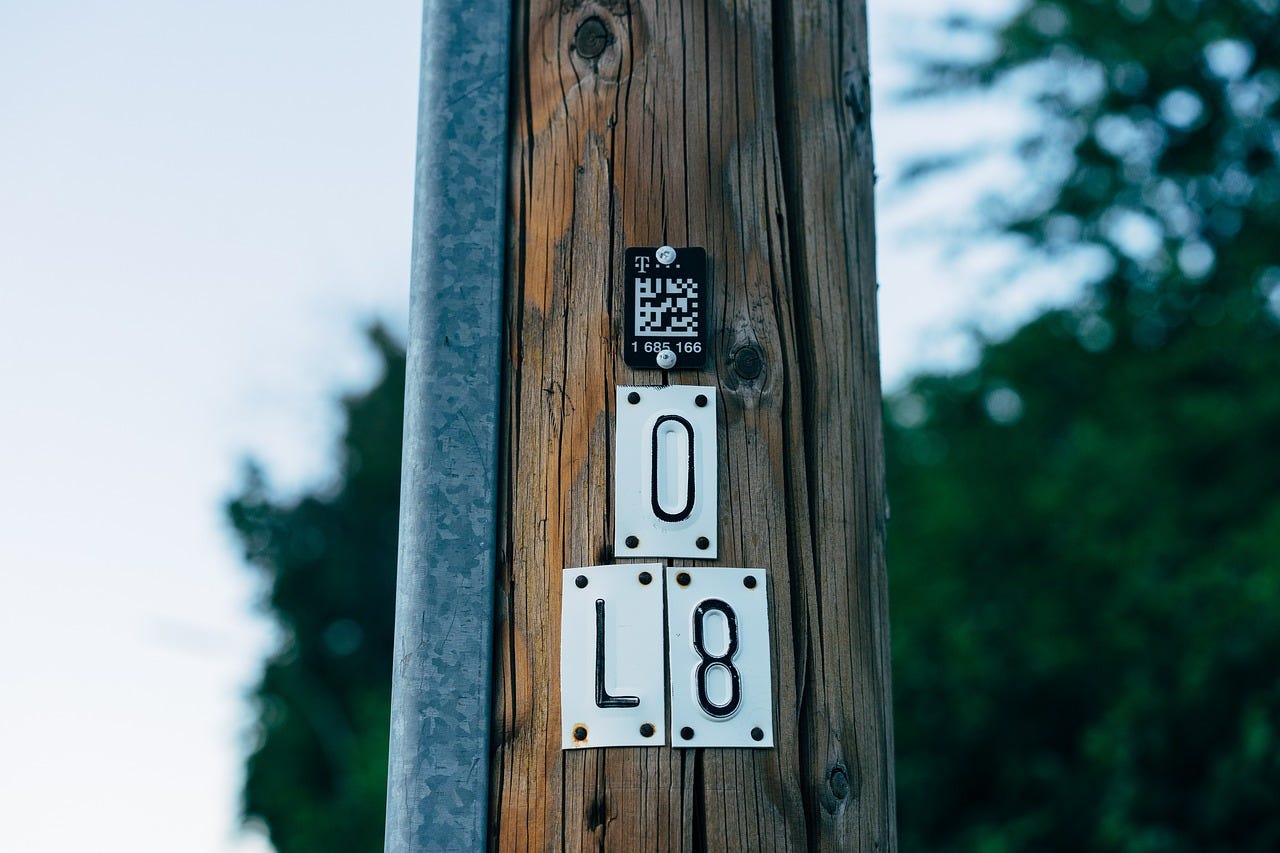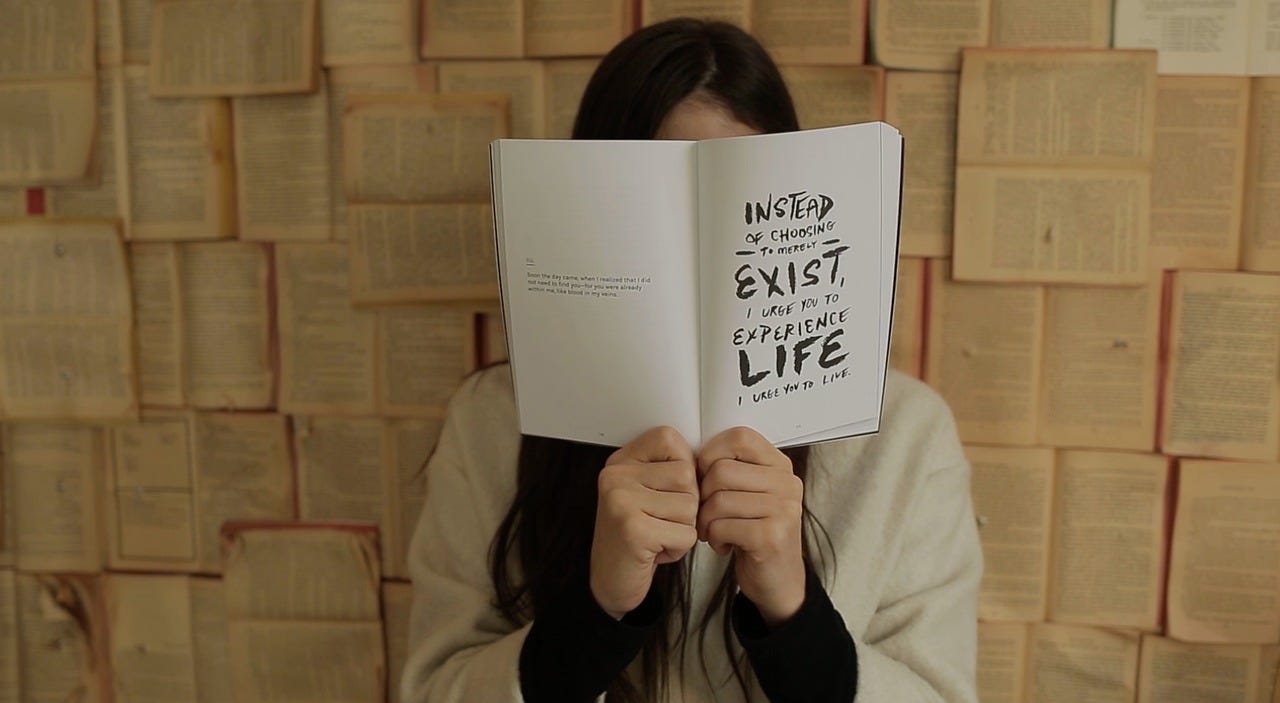Fight Book Bans with Little Free Libraries
How Do Little Free Libraries Turn the Tide Against Book Bans and Censorship?
Photo by Jacqueline Smith via Pexels
Book bans intensify across the United States, with efforts to censor literature in schools and public libraries threatening access to critical resources for marginalized communities. One of the closest incidents to my life occurred at my alma mater in McMinn County, Tennessee, where Maus, a Pulitzer Prize-winning graphic novel about the Holocaust, was banned from classrooms along with other books.
Where I live now, the Rutherford County Library System’s board recently voted to remove certain books, highlighting the growing trend of restricting access to books related to race, gender, and the history of European and North American Imperialism.
These bans are not just isolated incidents but part of a broader movement to limit access to literature that challenges dominant narratives. The implications are far-reaching, particularly for those who depend on these resources to foster understanding, empathy, and awareness of narratives other than the European colonizer.
The Book Banning Crisis in the US
Photo by Rafael Juárez from Pixabay
Book bans are often justified by claims of protecting children from "inappropriate" content, but these decisions frequently target works that confront real, important issues. The removal of books dealing with race, gender, and the full critique of capitalism particularly impacts students and community members who are already marginalized.
These bans don't just silence voices; they erase stories that need to be heard. By restricting access to books that speak to the lived experiences and histories of marginalized and oppressed peoples, we constrict the education and growth of young minds.
In Tennessee, the Maus ban and the subsequent votes on other materials are just the tip of the iceberg. Across the nation, many communities face similar battles as conservative groups motivated by right-wing think tanks like the Heritage Foundation (author of Project 2025) push for the censorship of any materials they deem "too controversial."
Let’s be clear; they ban books because they are fascist, sympathize with them, or lack principles to fall back upon. Fascism is the natural outcome of unopposed capitalism. Whether you consider yourself fascist or not, cowtowing that line makes you one in effect. It doesn’t matter the knot by which you tie yourself to destiny.
We commit through choice or inaction; what follows from that matters little from that point onward. But these efforts to control the narrative only reinforce the power structures that have historically oppressed and erased entire civilizations. While censorship is a tool of control, we resist this imperative.
Little Free Libraries: A Quiet Rebellion
Photo by John One via Pexels
Enter Little Free Libraries (LFLs)—a grassroots, community-driven initiative that allows people to freely exchange books. LFLs provide an accessible alternative to traditional libraries, offering unrestricted access to knowledge and culture.
As the book-banning crisis escalates, many LFLs have become quiet acts of rebellion against these forces of censorship. These small, public book exchanges are havens for those seeking uncensored literature, often filled with books banned in public libraries, schools, and beyond.
One inspiring example comes from Florida’s “Books Behind Bars” project, which curates Little Free Libraries specifically with banned books. The project aims to make these censored texts available to the incarcerated, allowing them to read stories intentionally withheld from public access. This is a powerful form of resistance, offering solidarity and empowerment to those with restricted access to information.
Across the country, there are countless stories of individuals using LFLs to resist censorship. Whether it's placing banned books in a public park or adding a curated selection of literature that tackles difficult themes, these community-led initiatives give people access to literature that has been intentionally suppressed.
The Future: Little Free Digital Libraries
Photo by Markus Winkler from Pixabay
The concept of Little Free Libraries can be expanded into the digital realm to combat censorship and increase accessibility by introducing Little Free Digital Libraries (LFDLs). Imagine networks of public spaces, from bus stops to coffee shops, where QR codes give instant access to PDFs of banned books. This idea could be the next frontier in fighting back against book bans, using the internet's power to host digitized versions of banned books decentrally, avoiding traditional takedowns and censorship.
LFDLs would be powered by a network of contributors: independent publishers, libraries, educators, and grassroots organizations. This form of digital mutual aid would allow communities to share books that might otherwise be inaccessible due to censorship while also creating a decentralized platform that resists centralized efforts to control the narrative. The idea is to ensure that banned books are never truly gone, even when libraries and schools are forced to take them down.
Time to Act!
Photo by Ruxanda Photography via Pexels
There are many ways you can contribute to the effort to protect free access to literature and resist censorship. Here are a few:
Build or Sponsor a Banned Book LFL: Consider building a Little Free Library in your community or sponsoring one. Ensure that it carries a selection of books that are frequently targeted by censors, such as works by Black authors, LGBTQ+ writers, and other voices who are marginalized by capitalism.
Print and Distribute QR Codes for Digital Libraries: Take a page from the Little Free Digital Library idea and print QR codes linking to PDFs of banned books. These codes can be placed in public spaces like bus stops, coffee shops, or college campuses to encourage the free sharing of literature.
Push Back Against Local Censorship Efforts: If you’re in a community where book bans are happening, get involved by attending school board meetings, speaking out against censorship, and supporting efforts to protect access to free and diverse literature. The times call for something beyond polity.
Little Free Digital Libraries
Photo by Jaredd Craig on Unsplash
The future of the Little Free Digital Library is an exciting one. Here are a few next steps for making this idea a reality:
Decentralize Hosting: Use a distributed approach to hosting PDFs of banned books, avoiding traditional, centralized publishing channels that may be susceptible to takedown efforts.
Place QR Codes in Creative Public Spaces: Think about placing QR codes in high-traffic areas like bus stops, coffee shops, and college campuses, where they can be easily accessed by anyone who wants to read them. Consider trailheads, public parks, and similar community spaces.
Crowdsource Book Collections: Start a community-driven project to digitize and share banned books. Contributions could come from independent publishers, educators, and community members who want to ensure these vital texts remain accessible.
Knowledge Should Be Freed
Photo by StockSnap from Pixabay
Censorship is not just about banning books; it’s about controlling narratives, erasing histories, and silencing voices that challenge the status quo. But history has shown that resistance to censorship is just as powerful as the forces seeking to suppress knowledge.
Little Free Libraries and the emerging concept of Little Free Digital Libraries represent more than just access to literature—they are acts of defiance, grassroots expressions of the belief that knowledge should belong to everyone.
By building and supporting these libraries, communities regain control over the stories they share, ensuring that books remain in the hands of those who need them most. Whether through a small wooden library in a neighborhood park or a digital archive shared through QR codes, these efforts push back against book bans with an unwavering message: Knowledge is not a privilege to be hoarded by the few but a right to be freely shared by all.
The fight against censorship is far from over, but it is a fight that can be won—not through institutions but through collective, direct action. Every book placed in a Little Free Library, every QR code scanned, and every conversation sparked by a once-banned book helps build a future where no one has the power to decide what knowledge others can access. So, take a stand, share a book, and be part of a movement that lifts voices and refuses to let stories be erased.
Beyond Darwinism - Mutual Aid Index
Beyond Survival of the Fittest: Kropotkin's Vision of Mutual Aid
What is the role of solidarity and reciprocity in building equitable and sustainable communities?
Mutual Aid Among Plants and Animals: Cooperating for Survival
Peter Kropotkin Observes How Cooperation Among Species Improves Survival and Shapes Evolution.
Frolics and Barn-Raisings: Mutual Aid Amongst the Amish
Take a Look at the Amish Traditions of Collective Action and Solidarity.
The Arab Spring: Mutual Aid in the Fight for Freedom
See Solidarity in Action with the Collective Struggle for Liberation in the Arab Spring Movements.
The Black Panther Party’s Legacy of Community Empowerment Through Mutual Aid
The BPP protected and served their communities despite rampant racism and being the main targets of the FBI’s Counter-Intelligence Program.
Blessing Boxes: Mutual Aid in Our Communities Today
Find Out How These Simple Free Community Pantries Transform Neighborhoods and Promote Solidarity.
Childcare Collectives: A Modern Expression of Mutual Aid
Childcare Collectives develop when families, friends, and neighbors pool their resources to raise children.
Feeding Hope: The Impact of Community Fridges as Mutual Aid
See How Grassroots Efforts Like Chattanooga’s Hope Community Fridge Transforms Food Access and Fights Food Apartheid.
Grow Food Together: The Impact of Community Gardening as Mutual Aid
Shared Gardens Enhance Food Security, Build Community Bonds, and Promote Well-being Without Personal Expense.
Community Self-Defense: Protecting Ourselves and One Another
Let’s Talk About How Communities Work Together to Protect Themselves From Harm Inflicted by the State and Fascists.
Community Workspaces: Where Coworking Meets Opportunity
Find Out How Shared Community Workspaces Support Creativity and Mutual Empowerment.
Deciding Together: The Consensus Model in Mutual Aid
How Collective Decision-Making Builds Strong and Resilient Movements As Shown by Occupy Wall Street.
Live Together, Thrive Together: Shared Housing as Mutual Aid
Imagine Housing as a Way to Build Community and Share Resources.
Breaking Bread, Building Bonds: What’s Cooking in Community Kitchens?
Learn How These Shared Kitchens Create Lasting Change Through Healthy Meals, Cooking Education, and Mutual Aid.
Migration and Mutual Aid: Navigating a Climate Crisis Together
The USA and Global North Grew Rich Burning Fossil Fuels. Radical Cooperation Can Help Us Adapt to a Changing World.
Forgive Us Our Debts: How Debt Collective Helps Abolish Financial Servitude
Debt Collective Branched Off From Occupy Wall Street and Unifies Debtors in Mutual Aid for Collective Liberation.
Thou Doth Protest? How The Diggers Reclaimed the Commons and Fought Early Capitalism
Learn About the Radical Solidarity and Resistance to the Enclosure of the Common Lands in 17th-Century England.
A World Without Barriers: Consider Accessibility in Mutual Aid
Everyone Becomes Disabled if They Are Lucky. So How Can We Make Our World More Accessible?
Mutual Aid in the Eye of the Storm: Disaster Relief Amid Climate Change
When Disaster Strikes, Mutual Aid Responds: A Blueprint for Resilience Amid More Frequent Catastrophes
Beyond the Ballot Box: Build Dual Power for Real Change
Empower People Through Mutual Aid, Solidarity, and Community Control.
Communities of Care: How Solidarity Transforms Support for Elders and the Differently-Abled
How Can Mutual Aid Principles Change Elderly and Disabled Care From Isolation to Connection?
Growing Resistance: How Food Forests Feed Communities for Free and Defy Capitalism
From Commodities to Commons: The Radical Potential of Agroforestry
Roots of Resilience: Black Mutual Aid Societies in American History
Explore W.E.B. Du Bois’ Work and the Heritage of Solidarity Among Black Folk.
From Despair to Dignity: The Radical Work of Free Clinics
How Mutual Aid and Community Solidarity Transform Access to Healthcare
Feeding Each Other: The Radical Power of Free Grocery Stores
How This Kind of Mutual Aid Transforms Hunger Relief into Community Empowerment
Challenge Capitalism One Free Store at a Time
How Free Stores Empower Communities and Challenge Scarcity
The Past & Future of Self-Governance: How General Assemblies Build Dual Power
Strengthen Communities Through Direct Democracy and Mutual Aid
Let Joy Guide You: The Power of Fun in Change Work
Explore the Role of Laughter, Creativity, and Connection in Community Organizing
Fascism Unmasked: How to Recognize and Resist Modern Authoritarianism
Empower Your Resistance: A Practical Guide to Revolutionary Optimism, Mutual Aid, and Defying Totalitarians
Resist Burnout: Care, Coping, and Wellness in Dark Times
How can we practice self-care to endure the revolutionary marathon and better support one another?
Resistance Anthems: Protest Music for Hard Times
Let’s Unite Our Voices For Justice Through the Power of Music!
Affinity Groups: Decentralized Resistance in an Age of Crises
How Do Small, Autonomous Collectives Build Power and Resistance Against Fascism, Capitalism, and Collapse?
Share a Feast: How Potlucks Build Community and Connection
Let’s Discuss How Sharing Food Nourishes Both Bodies and Bonds Across Generations.
Notes From the Underground: How Forests Teach Mutual Aid
How Do Fungi, Trees, and Other Plants Thrive Through Cooperation and Reciprocity?
Fight Book Bans with Little Free Libraries
How Do Little Free Libraries Turn the Tide Against Book Bans and Censorship?
Read, Rest, Revolt, Repeat: Study Groups as Mutual Aid
How Does Collective Study Build Power, Sharpen Strategy, and Sustain Movements?
Burn After Reading: Comms Discipline for Mutual Aid and Resistance
Think About Encryption, VPNs, Walkie-Talkies, and the Lost Art of Keeping Your Mouth Shut.











I love framing LFLs as a quiet rebellion! Great article once again - you've introduced me to some new ideas and I'll definitely be bringing the idea of QR codes directing folks to PDF LFLs to my community.
I love this idea! Banned books are works of art that need to be preserved for future generations. I shared this with Real Progressives group. 😊